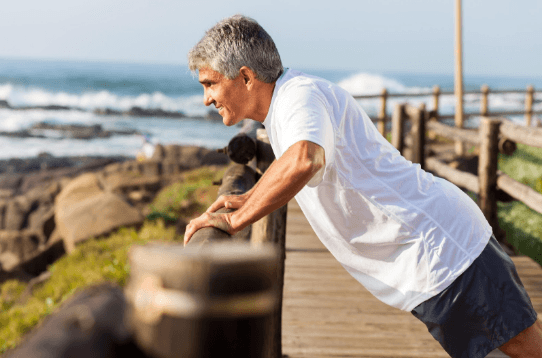Addiction can wreak havoc with your health, but alcohol rehab centers can help you get sober and get healthy. However, many people find that their health isn’t what it could be even after they get sober. Why is this? There are plenty of reasons, really, and part of it has to do with the fact that even in recovery, addicts and alcoholics tend to not care for themselves as well as they should.
Continuing bad habits such as smoking and a poor diet is common in the recovery community. While you don’t need to tackle every single bad habit all at once, it’s a good idea to develop some healthy ones that you can keep up with even after leaving alcohol treatment centers.

It’s Okay To Take Good Care Of Yourself
Staying healthy means caring for your body, mind, and spirit. Neglect one, and you tend to neglect the other two. Physical health, in particular, seems to go out the window, especially if you are feeling busy, anxious, overwhelmed or depressed, which are all common feelings especially in early recovery.
So how do you take care of yourself in early recovery? How do you form good habits?
Addiction is a disease that for so many people ends in death. Most recovering addicts know at least one person, if not more, who has succumbed to the disease or has suffered grave physical damage as a result of their drinking and using. The good news is that you are sober. From the moment you enter alcohol treatment centers you are healing your body, mind, and spirit. Each day that you don’t pick up, your are getting healthier. Here are some ways to continue staying healthy after you leave alcohol rehab centers.
You Are What You Eat
This is an old saying, but it is far more accurate than you might think. The food you put in your body is fuel for your body. You run on what you consume. If you are feeling tired, sluggish and unfocused, you are probably not eating as well as you should. The food you eat not only impacts how you feel physically but also how you feel emotionally and mentally. A healthy diet helps you feel energized, clear-headed and balanced.
One of the best guidelines for eating healthy is to eat real food. It’s pretty simple. If it comes in a box or a plastic bag, it’s likely not the best choice. Fruits and vegetables, fish and lean meats and whole grains are all good choices. Experiment, plan meals, buy fresh produce from local vendors and steer clear of artificial fillers. Eating healthy does not have to be complicated. Eat lots of leafy green veggies, snack on nuts, fruits, and whole grains. Eat lots of fish, such as salmon. Keep junk to a minimum.
Move Your Body
Aside from eating healthy, the next most important thing you can do to stay healthy is to exercise. It doesn’t have to be anything extreme, either. You can start right now by taking a brisk walk around the block. Do it every day. Do some cardio for about 20 minutes three or four times a week. Go hiking, swimming, bicycling or jogging. Do some push ups or lift some weights. Yoga, in particular, has been found to be beneficial to those in recovery. Yoga will strengthen your body, increase flexibility and stamina and help reduce your levels of stress.
The benefits of exercise aren’t just physical. Physical activity increases oxygen circulation to the brain, which helps you strengthen your cognitive ability. Substance abuse dulls your senses, chips away at your memory and interferes with your problem-solving skills. Increasing your physical activity helps heal your brain and undo some of the damage done. Add a healthy diet high in proteins and healthy fats to the mix and you will notice a huge difference in the way you feel and think.
Get Enough Sleep
Okay, this might be difficult in early recovery. It’s common to experience insomnia, restlessness and difficulty staying asleep, especially if you’re stressed. Getting enough sleep is crucial, though, if you want to function and feel your best. Here are some tips to help you fall asleep more quickly and stay asleep longer.
Create a bedtime routine by doing the same things at the same time each night. For example, at a designated time, put on your pajamas, drink a hot cup of tea, listen to something soothing and dim the lights in your home. Do this each night at the same time. This sends a signal to your brain that lets it know it’s time for bed.
Aromatherapy can be useful. Lavender is known to help promote sleep. Another trick is to take a warm bath before bed. It’s a good idea to begin your bedtime ritual at least an hour before you are planning to fall asleep.
Avoid screen time before bed. This isn’t easy, especially nowadays, but it’s important. The blue light emanating from the screen actually promotes wakefulness. Turn off all screens at least an hour before bed, preferably two. Also, don’t consume caffeine past three pm.
Take Time Out For You
Do good things for yourself — you’re worth it! Take time for journaling and meditation, and continue your recovery activities. Staying sober is the foundation of your new, healthy lifestyle, but you should absolutely not stop there. A healthy diet, exercise, and good sleep will improve your quality of life, and ensure that you feel your best.
Scott Tiger
Recent Posts
- Castor Oil For Better Hair Growth: Is It Myth Or Fact?
- Exploring the Differences Between Sermorelin, Ipamorelin, Ibutamoren, GHRP2, and GHRP6: Understanding Their Role in Human Growth Hormone Regulation
- Unraveling the Mystery: Understanding the Causes and Prognosis of Ventricular Tachycardia Without Apparent Heart Disease
- Understanding Grandparents’ Rights in Oklahoma: Navigating Visitation and Legal Protections
- 10 Reasons to Consider Hypnotherapy for Your Health

